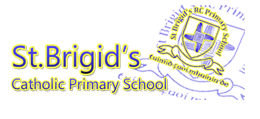Ongoing assessment is an integral part of the learning and development process. It involves practitioners knowing children’s level of achievement and interests, and then to shape teaching and learning experiences for each child reflecting that knowledge. Practitioners need to decide what they want children in their setting to learn, and the most effective way to teach it. In planning and guiding what children learn, practitioners must reflect on the different rates at which children are developing and adjust their practice appropriately. EYFS Statutory Framework 2024
Formal Assessment
- The statutory assessment in Early Years:
- 2 Year Check; which will take place in Nursery or via a child’s health visitor
- Baseline in Reception
- ELGs
Adult-led Learning (Shared and Guided Inputs)
Role of the practitioner, to:
- Share learning objectives / intentions and the purpose of the activity (stage appropriate)
- Support children to understand how learning relates to prior learning, key concepts, skills and knowledge
- Model key skills and strategies using a multi-sensory approach, developing conceptual understanding
- Provide opportunities for children to practise new learning
- Observe, scaffold and extend learning through modelling, talk, asking open-ended questions and being a co-player
- Revisit any misconceptions and scaffold learning
- Use specific praise to celebrate learning
- Identify and support next steps
Child-initiated / Independent Learning
Role of the practitioner, to;
- Be an interested observer and respect learning choices
- Be a co-player / resource / commentator (using descriptive commentary)
- Use the language of learning to focus children on themselves as learners
- Scaffold learning through modelling, talk and asking open-ended questioning
- Discuss and support problem solving; encouraging collaborative learning
- Promote opportunity for children to develop creativity
- Encourage children to practise, consolidate and apply key skills
- Encourage and support children to set their own goals
- Celebrate learning using specific praise
